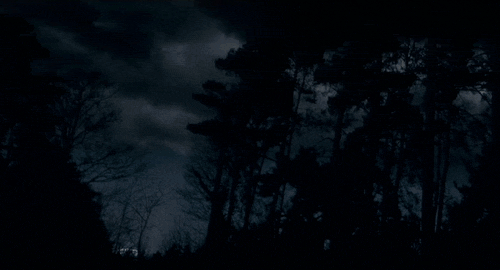Full Moon
The idea of werewolves transforming on a full moon was popularized by the movie Frankenstein Meets the Wolf Man (1943). Although the original The Wolf Man (1941) is where we get the overwhelming majority of our modern concepts of lycanthropy, it was actually the spinoff that had full moon transformations. This idea does have some basis in legend, however – certain southern regions of France believed in such, even well into the 1800s, and belief in the full moon causing werewolf transformations is also arguably indicated in some Greek legends.
In The Wolf Man, we get the relatively famous (among werewolf scholars, anyway) rhyme…
Even a man who is pure at heart
And says his prayers by night
May become a wolf when the wolfsbane blooms
And the autumn moon is bright
This specifies when the werewolf actually transforms in the film – in autumn, when wolfsbane blooms. This didn’t really catch on in pop culture, of course, and it wasn’t until the following year that the full moon transformations got so popularized. This was the new, altered rhyme said in Frankenstein Meets the Wolf Man:
Even a man who is pure at heart
And says his prayers by night
May become a wolf when the wolfsbane blooms
And the moon is full and bright
So, does this have any basis in folklore? Totally.
From page 46 of Sabine Baring-Gould’s Book of Werewolves, as mentioned, many southern regions of France believed in such things well into the 1800s, and plenty of writings shared the idea that men “transformed into wolves at the full moon. The desire to run comes upon them at night.”
A perhaps vaguer indication of werewolves being connected to moonlight can be found in Niceros’s tale, which is retold by Petronius in The Satyricon, but also exists in other forms and told by other writers. It is a very often cited werewolf story, if brief. Without recounting the entire tale (I could do that some other time), the werewolf in the story is arguably influenced by the fact that “the Moon shone bright as day,” when the transformation took place, though there is no clear indication in the story itself that moonlight was necessary for the act of transforming (only necessary for Niceros having seen it and being mentally scarred).
